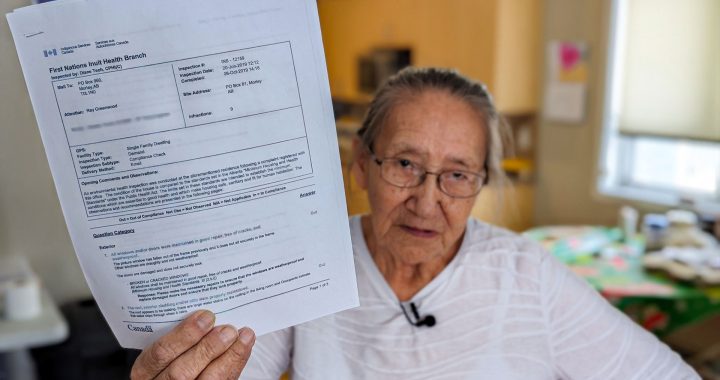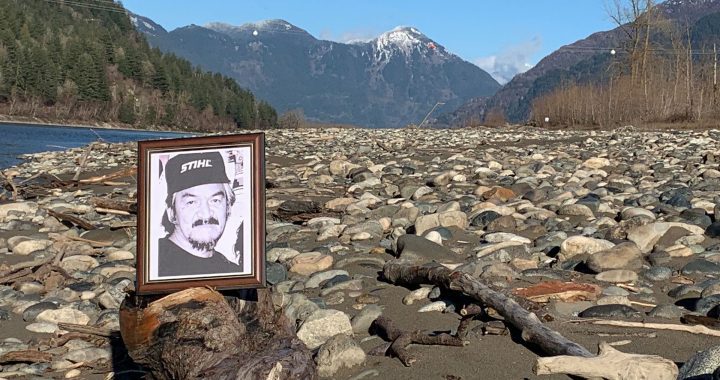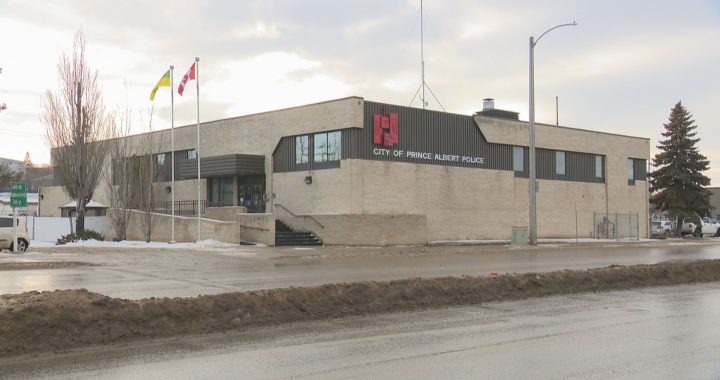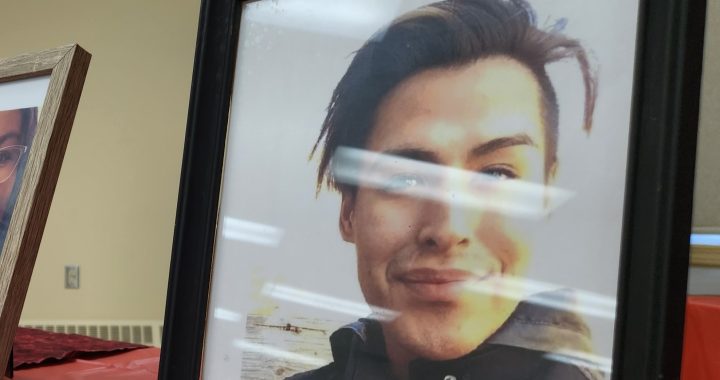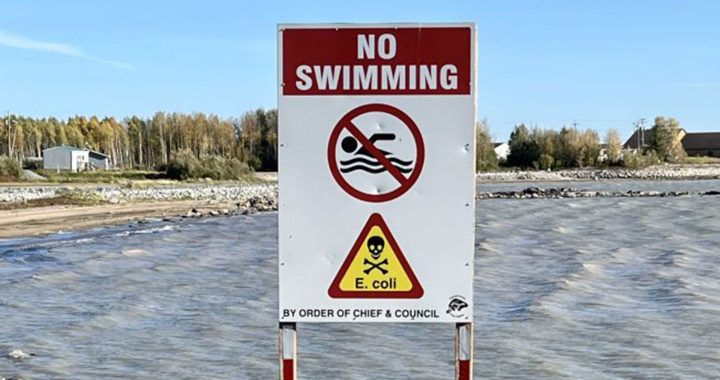Residents who live at the KekiNan Centre, an assisted living facility in the North End of Winnipeg, say they are concerned with tenant deaths, theft and crime.
“At first, it was ok because I’m the kind of person that sticks to myself and minds my own business, but I started to see things that weren’t right,” said one resident.
In 2019, journalist Niigaan Sinclair wrote an article for the Winnipeg Free Press that detailed the residents’ concerns.
“I witnessed the lack of programming. And I also witnessed tenants who were helping one another in completely unsanitary conditions, tenants who are helping each other to rebuild their wheelchairs, tenants who are helping one another to clean up the mold, to clean up the bugs that were infested in their suite,” said Sinclair.

Residents say after the article came out they were mistreated. Two agreed to speak with APTN Investigates on the condition of anonymity.
“We started discussing our issues and concerns and wrote them all down and presented to various organizations and the government people and we got nowhere with it. No one was listening,” said another KeKiNan resident.
For nearly a decade, residents have documented their concerns through emails, meeting minutes and reports to various organizations.
In a 2012 tenant meeting, residents documented “kids running on the roof” and the need for 24-hour on-site security.
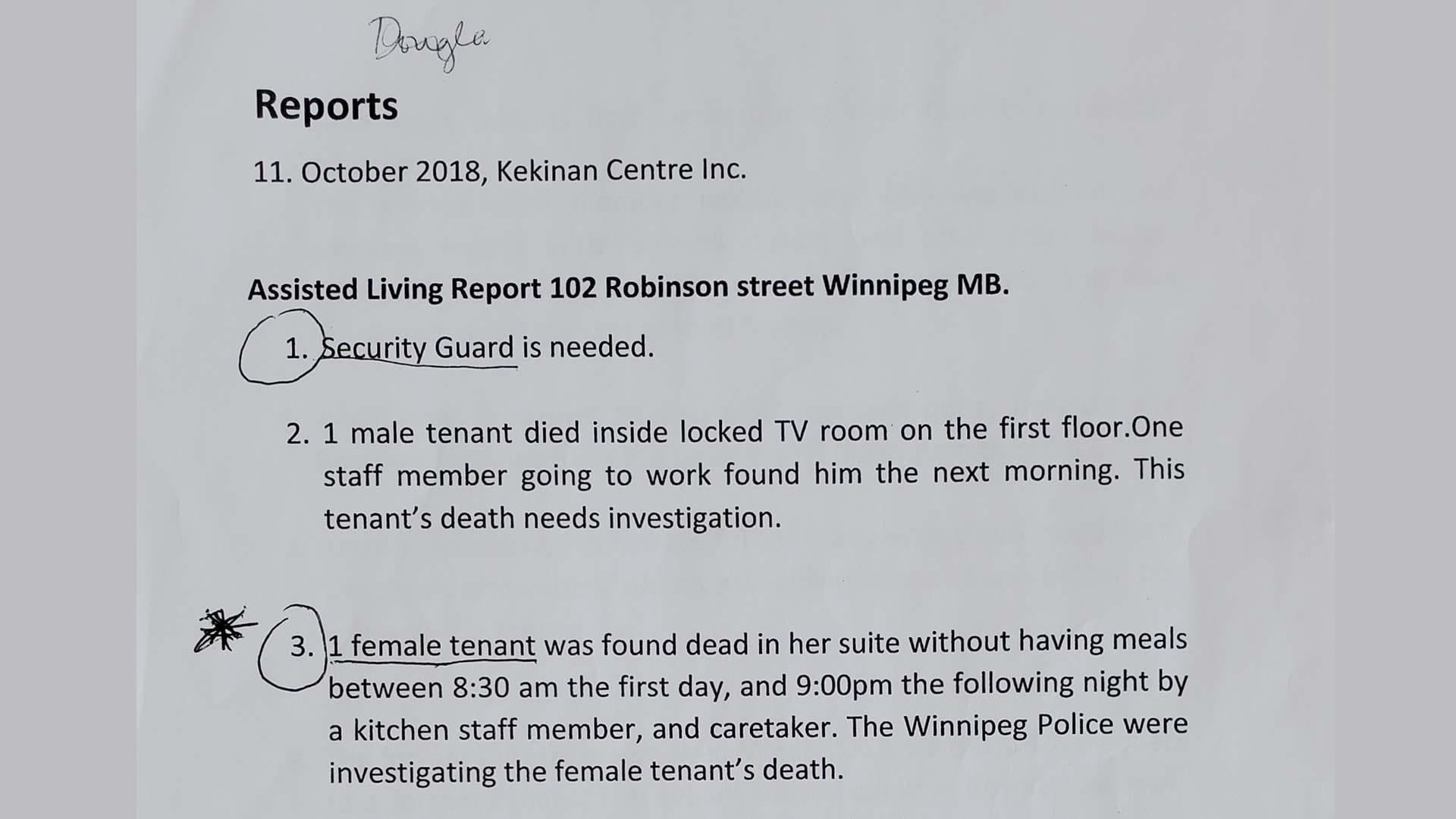
A report from October 2018 outlined 22 issues and concerns the residents had.
“1 male tenant died inside locked TV room on the first floor. One staff member going to work found him the next morning,” the report reads.
The report indicated that a female tenant had passed away in her suite; residents say the woman’s children reached out to the tenants at KeKiNan to help them find answers.
A few of us got together to help the children. The older children wanted to know why nobody knows that their mother has passed away. [It was] four days until they started smelling the death in that hallway,” said a resident.
“When I asked how many deaths there were there, the caretaker then didn’t want to tell us why they died or how they died. And that got us worried because we could be next,” said another resident, referring to a former caretaker.
The Executive Director of Winnipeg Housing, James Heinrichs, says the challenge is balancing the residents’ independence while still providing services.
“We have had not only that case, but there have been a couple of others where people have been found deceased in their rooms,” said Heinrichs. “In each of those cases, there was no further investigation. They had died of natural causes or because of the health issues that they had.”
Residents said they would feel safer with an on-site security guard and a nurse.
“Security can only be as good as the tenants that live there. And if people allow certain individuals into the building, that could sometimes create some of those problems,” said Heinrichs.
Heinrichs and Johnston said they are both committed to resolving the issues within the assisted living complex.
“We are going to be working with governments, with other partners to look at the issue of security in our community as a whole and how we might provision security services,” said Damon Johnston, who serves as the board chair of the KeKiNan Centre.
Residents say KeKiNan Centre is falling short
Residents say the centre is not living up to the original vision of its founders.
In 1983, the Manitoba Indian Nurses Association board of directors submitted a proposal to obtain funding to complete a study that would determine the feasibility of an Indigenous senior care home in Winnipeg.
The idea was first introduced by Grace Easter, a Chemawawin Cree Nation member. Easter was a registered nurse and served as the president of the Manitoba Indian Nurses Association.
The mandate was to address the need for long-term care options for Indigenous seniors.
In a 1991 letter addressed to Indian Personal Care Home Delegates, Dorothy Betz, president of the KeKiNan board, said they had not yet received funding for personal care home units as outlined in their original proposal to the province.
“My mother approached the City of Winnipeg requesting a parcel of land where KeKiNan could be built,” said Lorraine Kakegamic, Betz’ daughter.
“She went to residential school herself. And she just saw a need for a center for the Native elderly. There wasn’t anything like it in Winnipeg or anywhere.”
Betz secured $2.54 million in cash for the project, but the financial support for a personal care home never came through.
Betz’ proposal to the provincial government to build a personal care home was never approved. Later that year, she secured $2.54 million in funding for the KeKiNan Centre to function as an assisted living facility.

In the winter of 1991, the KeKiNan Centre opened its doors to its first residents as an independent living complex. The centre offered social and recreational activities and worked with various Indigenous organizations to provide services and programming.
KeKiNan, meaning “our home” in Cree, served as the first urban Indigenous senior’s home at 100 Robinson St., in Winnipeg.
Construction in 2010 saw the addition of 28 units next door for assisted living.
Manitoba Housing and Renewal Corporation subsidizes and owns the centre.
The KeKiNan board of directors reports to Winnipeg Housing Corporation, which provides property management services.
University of Saskatchewan Professor Bonita Beatty says KeKiNan is just one example of the many long-term care solutions for Indigenous people in Canada.
But Manitoba is one of six provinces and territories in Canada that does not require assisted living facilities to comply with provincial standards.
Assisted living residences in Manitoba do not fall under the provincial government’s jurisdiction and are not required to conduct inspections or standard reviews with the province.
Beatty says that even before the arrival of COVID-19, many families were concerned with the kind of care their relatives were receiving.
“The ministers of health have had to try to take steps in terms of patient’s rights and so forth and improving oversight for these facilities. But in terms of even the governing of facilities in general, there is oversight needed,” said Beatty.
She said there is a need for national standards of care for seniors receiving long-term care services in Canada.
Watch Part 2 of the The Elder Gap here.
Statistics Canada’s most recent Aboriginal Peoples Survey indicated there is no current data explicitly collected to determine how many Indigenous Peoples live in collective dwellings, such as nursing homes and seniors residences.
KeKiNan is just one of many solutions that address long-term care for Indigenous seniors in Canada.
“I feel helpless,” said one resident, in tears. Both residents say they just want to feel safe.






